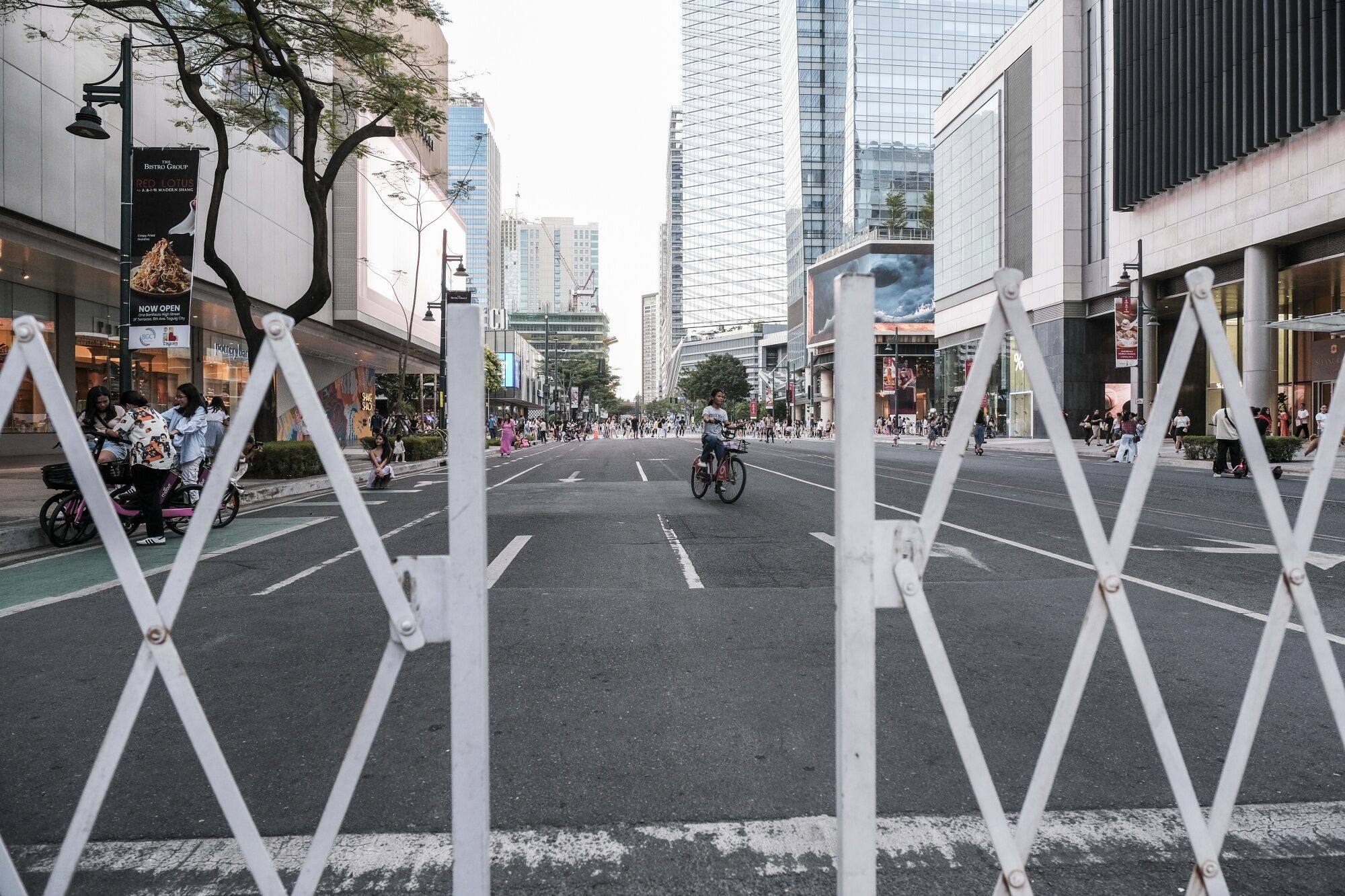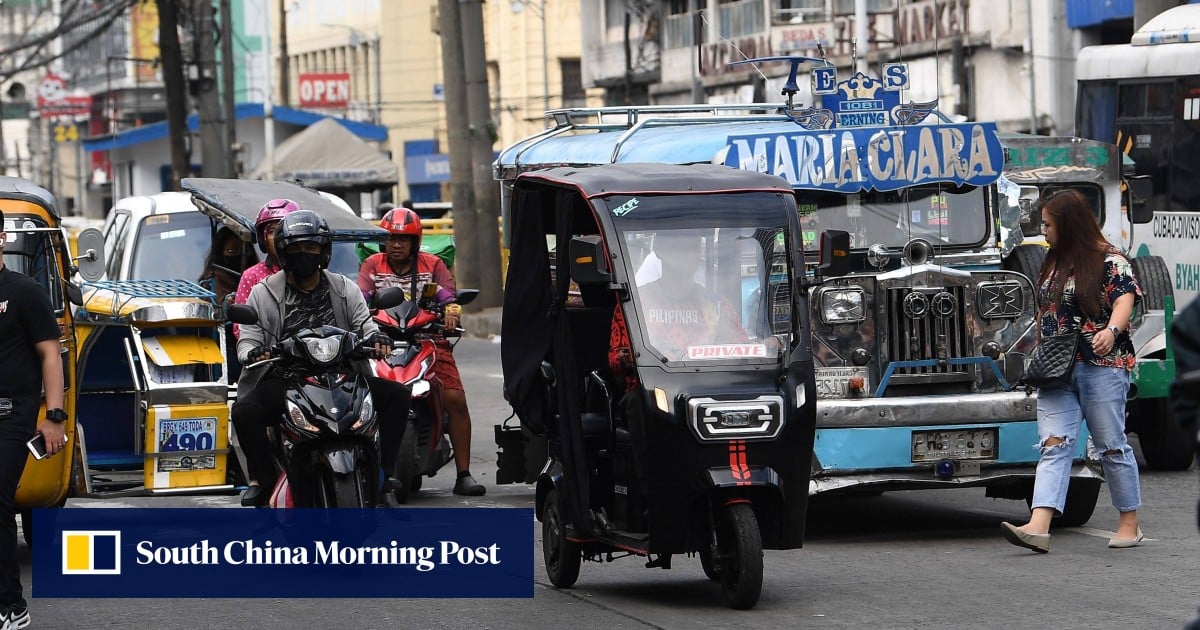This sparked anger from members of the public, including from commuter groups and alternative transport advocates.
Community-led cycling groups such as the Make It Safer movement led a protest on April 10 at the human rights commission in Quezon City, days before the ban was to be implemented.
The president said he has instructed the MMDA to provide some leeway to the affected vehicles travelling along the roads identified in the resolution.
“Under the grace period, no tickets, fines, or impounding of [e-tricycles] will be issued. If they will be flagged, this is so our authorities can properly educate them on the roads they can use, and remind them of the new rules to reinforce safety and order on our roads,” he said.
The president did not specify a time frame for the grace period.
Ira Cruz, director of Alt Mobility PH, an advocacy group for pedestrian and commuter rights, told This Week in Asia that the group welcomed the president’s decision to delay the ban.
“We would like to see it as an indication that the president listens to public sentiment. We hope that MMDA takes the president’s lead in incorporating humanity into policies,” he said.
Cristina Batalla, an organiser with the Make It Safer movement, said proper education and enforcement were essential in improving the mobility guidelines for light electric vehicles.
In a February interview on news channel Teleradyo Serbisyo, MMDA chairman Romando Artes justified the ban to counter the increasing number of accidents involving light electric vehicles.
The agency recorded 554 accidents with two casualties last year, he said.
“We don’t want to increase the number of minors and those of old age driving these without licences, not following traffic rules … for safety reasons, we need to regulate them this time to reduce accidents,” he said.

Cruz called the agency’s response “disproportionate” and “very bewildering” as data showed that road crashes involving motor vehicles vastly outnumbered other modes of transport.
The MMDA recorded 44,493 vehicular accidents in Metro Manila from January to July last year, 44,000 of which involved four-wheel vehicles.
“The popularity of e-trikes is due to the government’s inability to provide a working transport system. So it’s hugely unfair that the government is cracking down on a solution born out of its inability to provide basic services,” Cruz said.
Batalla said light electric vehicles served as valuable alternatives for segments of society that cannot afford cars and have limited options due to inefficient mass transport systems.
“A lot of the people who use these are daily labourers, single parents, and healthcare workers. We’ve heard a lot of stories from single mothers who use e-tricycles to bring their kids to school and make multiple care trips,” she said.
‘I am my own master’: in India, electric rickshaws uplift lives of trans people
‘I am my own master’: in India, electric rickshaws uplift lives of trans people
She added that those who use these types of vehicles generally use them for trips of five kilometres or fewer, but the lack of side walks and seamless public transport have made it difficult for pedestrians to make these trips on foot.
“If you look at more walkable cities, they can do it. But with the extreme urban heat that we have, lack of proper pavements and very hostile crossing spaces, it’s not easy to get there,” she added.
Cruz criticised the MMDA for not conducting a proper public consultation before they issued the resolution, adding that the ban “failed to take into consideration its applicability on the ground as reflected in the broad exceptions in the resolution”.
Cruz said the agency’s latest resolution followed a series of car-centric policies, despite car owners being in the minority. These included the removal of selected bike lanes and the blocking of the implementation of an active transport infrastructure plan that the agency itself had approved last year, which would improve bike lanes and walkways across Metro Manila.
Final destination: Philippines’ Jeepney drivers protest against phase-out plan
Final destination: Philippines’ Jeepney drivers protest against phase-out plan
“This shows the agency’s tendency to implement policies that unfairly promote the welfare of private motorists and, in so doing, fail in improving the mobility of Metro Manila residents,” he said.
Pedestrians, cyclists, and other commuters using alternative transport are perceived as pests by car owners, Batalla said.
“ We’re accused of being irresponsible, of not belonging to the road … it’s a struggle for us because it breeds a lot of hostility. It makes us feel that we don’t have the right to assert our own space,” she said.
Meanwhile, Cruz said the MMDA needed a “significant paradigm shift” in its policymaking, “one that recognises evolution in transport and, more importantly, one that puts more importance on the welfare of the majority of road users”.
